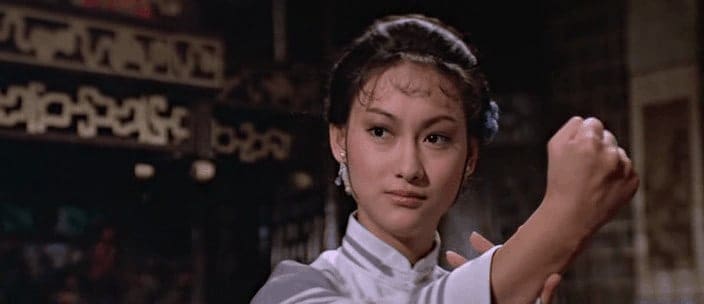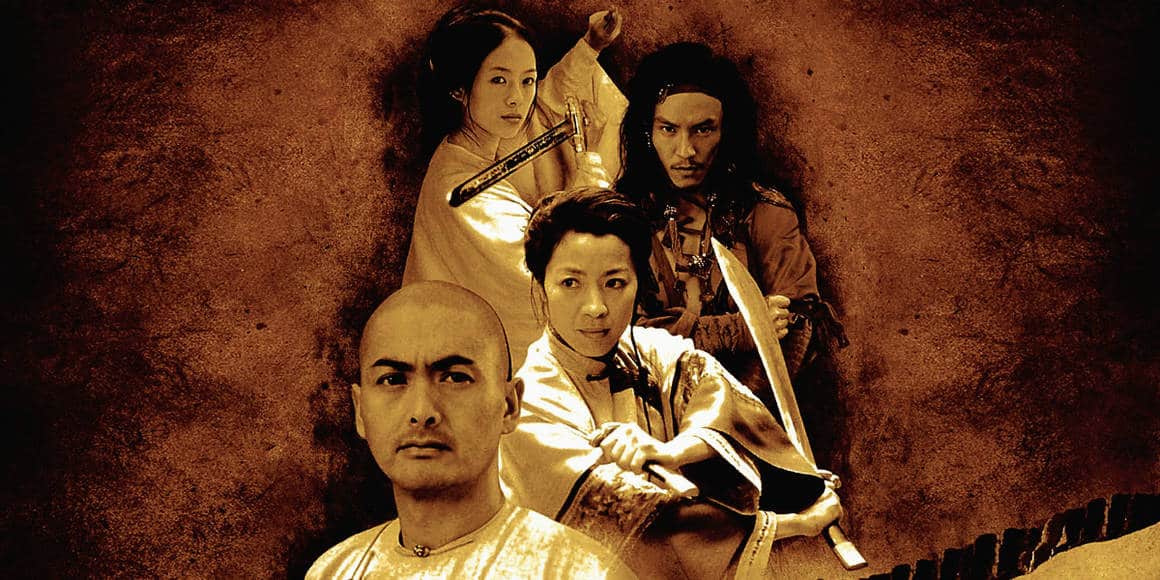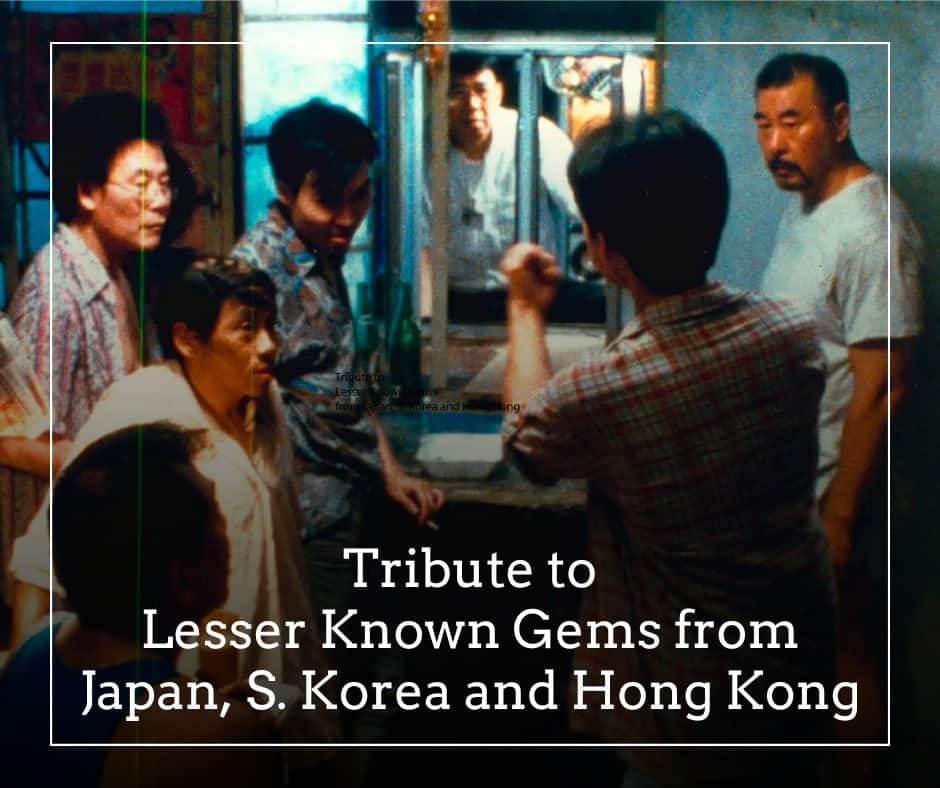“Open the Door” by Chang Hangjun – Desperation
Chi-hoon lives in the USA. His mother was killed by a robber and he is still traumatized. He gets drunk with his brother-in-law. While doing so, the conversation turns to his sister, who told Chi-hoon that she was being beaten by her husband. The brother-in-law reacts agitatedly and blurts it out. Did the sister order her husband to kill her mother? But what for. Little by little, the brother-in-law believes that the sister is probably not quite innocent, as the brother thinks. In fact, she turns out to be a real Lady Macbeth. Everything revolves around money, or rather the fact of not having any.
Fascinating is the form of the thriller-drama, which resembles that of a play and is divided into individual chapters or acts. The chamber play develops a remarkable pull, after which the story at first seems to drag on a bit and the plot seems predictable. Betrayal, desperation and greed come together here. What is one willing to do for one’s own survival? What line does one cross for the love of another? It is exciting how the Korean director tells a thrilling story with reduced means, which include a few flashbacks, but above all the precise concentration on space and time. In the last chapter, where the protagonists are the youngest version of their characters, the acting is a bit bumpy and the plot a bit cheesy, trying hard to show an idyll that is far from the one at the beginning of the film. This could have been done without for an impressive overall picture.
“The Ripple” by Lim Seughyun – Deep Guilt
Yebun’s granddaughter drowned in the river after she went on a canoe trip. She blames herself greatly for having pushed her away while drunk that day. Since then, she searches the river daily with a metal detector. Yebun’s only caregiver is her best friend Okim, but she dies of cancer and leaves behind a granddaughter who has no one else and who is also Yebun’s granddaughter’s best friend. Both need each other, but they have to deal with their respective guilty consciences before they can take care of each other.
Lead actress Kim Jayeong is always at her best when she does as little as possible. In some overemotional scenes, such as when she’s drunk, her acting doesn’t seem quite as commanding. The story revolves around issues of guilt and grief. The protagonist is paralyzed by this, mechanically pursuing a ritual every day with her search in the river. It takes a lot of strength to break this vicious circle. In itself, “The Ripple” whose title, small wave, refers to the river that signifies life and death at the same time, has a sensitive plot that pleads for more understanding for each other and for an expanded definition of family.
“Thousand and One Night” by Kubota Nao – The Long Wait
Tomiko’s husband disappeared 30 years ago. She is still waiting for him. A childhood friend of hers would like to marry her, but she fights him off. Even a temporary partnership, as long as the man does not return, is out of the question for her. One day, she visits another woman whose husband has also disappeared and who is supported by Tomiko in her search. This man has been gone for two years, his wife is also reluctant to commit to a new life, but she is different from Tomiko.
The second feature film by the Japanese director won the Fipresci Prize in Busan. On the one hand, this award can be justified by the sovereign acting performance of the two women, namely Tanaka Yuko as Tomiko and Ono Machiko as Nami. On the other hand, the story is very melodramatic and very depressing. It nevertheless addresses important social issues that are not specifically Japanese, but universal, reflecting the worries and longings of our time.
“Zwigato” by Nandita Das – Caught in the Star Ratings
Manas has taken a job as a delivery courier at the Zwigato company to help feed his family. The app that coordinates his work always drives the family man up the wall. Short delays are punished with automatic logouts, leaving the assigned quarters brings further penalties, and he only gets a bonus when he has made at least ten deliveries a day. But this is absolutely unrealistic. At the same time, his wife also wants to contribute to the family’s upkeep and applies for a job as a cleaner. Manas, however, is hurt in his masculine honor by this.
Despite the harshness of the circumstances described, the film repeatedly finds its way to humorous individual scenes. These are based, for example, on the automatism of the app, to which the protagonist is at the mercy of. There is also systematic friction between the different social classes, which at first seems absurd, but on a second viewing leads to the realization of how difficult it is to overcome these old, conservative structures. At one point, the manager of Zwigato says that the company is an example of tolerance. Everyone is employed, regardless of which caste they once belonged to. Except, of course, there is a hierarchy here, which is maintained by a digital evaluation system. “Zwigato” is the image of a contemporary India that is convulsively trying to get at an idea of modernity for which the individual is supposed to take responsibility. The state has gone out of its way insofar as it has officially declared the caste system abolished, but fails to create the necessary structures to absorb this. The third feature film by Indian director Nandita Das is another example of how quickly contemporary film from India has developed into a committed and artistically sophisticated form of filmmaking.
“B for Busy” by Shao Yihui – In the mood for love
Mr. B lives in Shanghai in an affluent neighborhood. He is an art teacher and a passionate cook. He is divorced, as is Ms. Li, who has moved back in with her mother after divorcing a British man with her daughter. The two begin an affair, but Li constantly keeps B at a distance. B is not deterred and approaches her with small attentions.
Chinese director Shao Yihui’s feature film debut is a light comedy about the lives of well-off middle-aged people. The actors are all likeable, and the rhythm of the film works well. “B for Busy” shows a very different picture than usually dominates in Chinese films. The protagonists come from the upper middle class, do not have to struggle for survival. They have time to deal with the more trivial things of everyday life.













